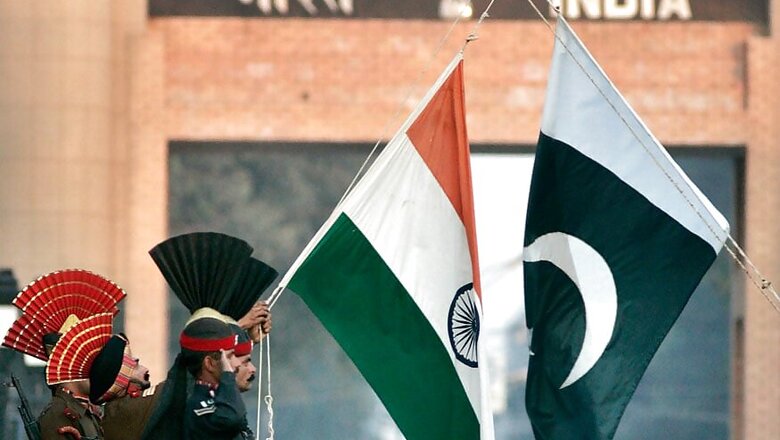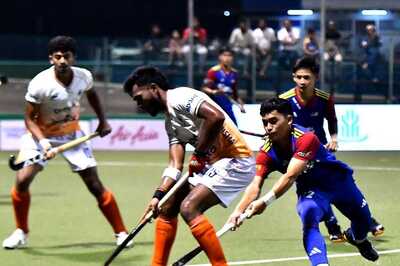
views
Dubai: Parliamentarians and journalists from India and Pakistan have highlighted multiple challenges in covering the India-Pakistan relationship and stressed that an enabling environment for free and fair reporting must be ensured.
This was one among several recommendations made at the fifth round of Pakistan-India legislators and public officials dialogue facilitated by Pakistan Institute of legislative Development and Transparency (PILDAT) at Dubai , U.A.E on December 11-12. Legislators and journalists from both the countries have met up twice in Dubai to go around visa restrictions in India and Pakistan in the backdrop of recent tensions in their relationship.
The dialogue on the role of media in improving cross border ties had elected representatives from the Congress, Indian National Lok Dal and the Aam Aadmi Party attending. A recently concluded dialogue also facilitated by PILDAT had several BJP legislators participating.
The Pakistani delegation had representatives from Pakistan Tehreek-e-Insaf, Pakistan People’s Party, Pakistan Muslim League - Nawaz, Pakistan Muslim League - Functional and was chaired by Javed Jabbar, the former Federal Minister for information and media development, Pakistan. The Indian delegation had Mani Shankar Aiyar, former Member of Parliament and a former Union Minister in the chair.
The Dialogue recognised and appreciated the diversity of opinion in the Indian and Pakistani media and promoted a balanced and positive approach in news media of both countries towards improving relations. Participants stressed that sensationalism and negative hype must be avoided in reporting India-Pakistan matters in both the countries.
Participants also highlighted the continuing issue of inability of news organisations in India and Pakistan to appoint reporters in each others countries. They underscored that lack of access for media to locations in the other country and obstacles in obtaining visas for journalists of both countries remain key issues hampering an informed portrayal of each country. Mani Shankar Aiyyar said media correspondents must be there in both countries to better understand each other.
While India has in general been more open to granting visas to Pakistani journalists than vice versa, participants reiterated the earlier demand that India and Pakistan should put in place policies ensuring ease of access, travel and reporting by journalists from both countries.
Emphasising the role of the media in improving ties Ahmed Bilal Mehboob, President , PILDAT said until Pakistan understands what bothers India and Indians understand what bothers Pakistan, effective dialogue cannot take place.
However, participants underscored that while media can play a role in positively influencing relations between the two countries, the essential responsibility to chart a course in this regard remains that of the elected leadership in both India and Pakistan.
With reference to the recent Heart of Asia Conference in Amritsar, the participants observed that in inter-State relationships, due consideration, courtesy and diplomatic protocol must be observed. Mani Shankar Aiyyar referring to the cold response to Pakistan Prime Minister’s Advisor on National Security and Foreign Affairs, Sartaj Aziz, in Amritsar said “It is Sartaj Aziz who stands to gain from this and makes India look weak. It was needlessly discourteous.”
Underlining the critical need for positive and continuous engagement between Pakistani and Indian media, participants highlighted that institutional arrangements in two countries through the respective professional associations and forums of owners, editors and journalists must be facilitated for dialogue.
“Media in both countries must develop priority policies to positively influence India Pakistan relations,” said Senator Sassui Palijo from Sindh, Pakistan.
(The writer attended the dialogue at the invitation of PILDAT)



















Comments
0 comment